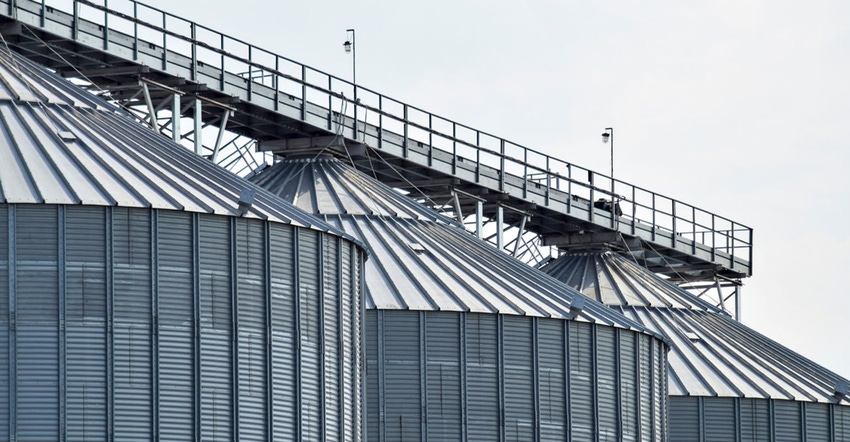
A fairly new client called Monday afternoon (Aug. 8, 2022) to ask what she should do with 9,000 bushels of beans in the bin. She said her merchandiser told her the basis would drop 30 cents in the next week; she did not need the money, had fondness for storing beans a long time, and had never done anything except store, forward contract and cash sales.
I asked what she thought the market would do. She said she thought it would go up eventually, if not sooner. That was why she was willing to store the beans on the farm through harvest.
Red flag warnings
If bells are not ringing in your ears and red flags flashing in front of your eyes, you really need to keep reading.
After an explanation about what the bean basis will do between now and harvest time, she immediately made it very clear there was no way she was going to do any of that futures or options “stuff.”
I told her “no problem” and recommended she put the beans on a basis contract and deliver the beans now. She would get a 70% cash advance, lock in the basis before she lost more than a dollar a bushel in the next 45 days, and, if futures did rally, she would make the same money on the basis contract that she would have made with the beans in the bin with no condition risk and 70% of her money in hand.
I told her if bean futures declined $2, she would lose $2 just as she would with the beans in the bin. If beans lost 30% of their value, her grain merchandiser would be calling her for margin money, but her grain bin would not call her to tell her the beans were worth 30% less than in August.
There was a very pregnant pause. Then she said, “I never did that before.” I explained if she sold the grain, she was going to miss out on the soybean rally coming very soon in futures. If she left beans in the bin, she absolutely was going to lose more than a dollar a bushel on 9,000 bushels in a matter of weeks. But if she did a basis contract, she would avoid both potential losses of income.
Another pregnant pause in the conversation. I sensed I was about to fail in my education effort, so I said, “I would really prefer that you find out exactly what the basis is for delivery now, basis for fall delivery, and then call me in the morning.”
She more or less agreed.
By nearly 11 a.m. Tuesday, I had pretty much given up, but then she called. The first words were, “I am going to do it. I checked it out. You were right, I can get 70% cash advance and… etc.”
Actually, I was pretty disappointed I did not get a chance to show her how much money she was going to lose if she left the beans in the bin, but here is the explanation for you!
Using CHS quotes at a nearby location to our client:
Basis for beans delivered this week: $1.75 over September which is the same cash price as $2.39 over November.
The basis for beans for October delivery is 28 under the November futures price.
If she left her beans in the bin, she would have lost $2.67 a bushel (plus $2.39 basis to minus 28 cents) on basis, regardless of what the futures had done. The basis loss would have been more than $24,000 on 9,000 bushels.
By the way, the corn basis at the same CHS location is 82 cents over the December for August delivery and 28 cents under the December for October delivery. Corn left in the bin will lose $1.10 basis per bushel in the next 50 days.
Enemy number one
This old crop to new crop basis loss happens every year and it is farmer marketing enemy number one. It is just one more reason why you need to separate the day you lock in the basis from the day you lock in the futures.
Those bins you paid big bucks for often make you a lot more money empty than full.
Wright is an Ohio-based grain marketing consultant. Contact him at (937) 605-1061 or [email protected]. Read more insights at www.wrightonthemarket.com.
No one associated with Wright on the Market is a cash grain broker nor a futures market broker. All information presented is researched and believed to be true and correct, but nothing is 100% in this business.
The opinions of the author are not necessarily those of Farm Futures or Farm Progress.
About the Author(s)
You May Also Like






